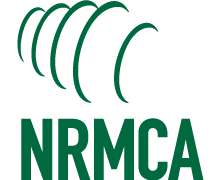
| Archive | nrmca.org | E-Store | Conferences & Events | Certifications | InFocus | Membership Directory |
Federal Labor Officials Propose New Overtime Pay Regulations Last week, the U.S. Department of Labor’s (DOL) Wage and Hour Division published a proposed rule to change how overtime pay rules (guaranteed through the Fair Labor Standards Act or FLSA) are applied and to whom they can be applied. Currently, executive, administrative, professional, outside sales and computer employees, considered "white collar" workers, are exempt from receiving overtime pay as long as they, in part, receive a salary in excess of $455 per week or $23,660 per year. Specifically, the proposal aims to increase the weekly/yearly minimum pay ceiling levels to be eligible for overtime pay to $921 per week and $47,892 annually. The proposal also aims to increase the highly compensated employees exemption minimum to $122,148, an increase from the current $100,000 level. The proposal also would "establish a mechanism for automatically updating the salary and compensation levels going forward to ensure that they will continue to provide a useful and effective test for exemption." Finally, DOL is seeking comment on whether changes to the "duty tests" (the other factors that determine a worker’s exempt status) are necessary "in order to ensure that these tests fully reflect the purpose of the exemption."
The proposal is estimated to cost the private sector roughly $2 billion in the first year alone. DOL estimates that subsequent years could result in private sector payroll increases of approximately $1.22 billion per year. The proposal is estimated to increase overtime pay for 6.3 million "white collar" workers and 3.7 million "blue collar" workers.
The public comment period on the proposal is open through Friday, September 4. Click here to view the proposed rule and its related materials. For more information, contact Kevin Walgenbach at kwalgenbach@nrmca.org.
|
|
|







